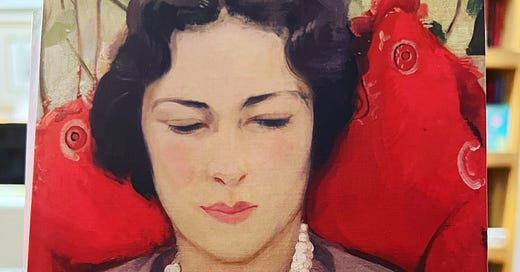These women were old, time had softened them, they had learnt something from loss, helplessness, loneliness; they knew that almost anything can happen to anybody. They were kinder than when they were young.1
Dorothy Whipple’s Someone at a Distance – recommended to me ages ago by Paul Foster – is a Home Counties twist on Madame Bovary, which it references.
The story rests, at first, upon a truthful, troubling binary: people who are nice, naïve, virtuous and susceptible to shame will stumble; people who are unlikeable, calculating, corrupt and shameless get on.
For most of the novel, Whipple doesn’t favour one type over the other, so things become morally thorny. Children and animals are more reliable than adults. Life is uncertain, so there are always explanations for corruption and shamelessness. Things change; well-tended English gardens can go to seed.
Whipple’s writing is interestingly unelaborate, her characterisations psychologically complex. Melodramatic events occur in an atmosphere of post-war unease. There are echoes of Terence Rattigan’s The Deep Blue Sea. The middle-class Englishmen don’t face the decade with confidence. The middle- and working-class Englishwomen face it by cultivating their cleverness, competence and compassion.
The Emma Bovary character is absolutely fascinating.
Dorothy Whipple, Someone at a Distance (London: John Murray, 1953; repr. London: Persephone, 2011), p. 359.




